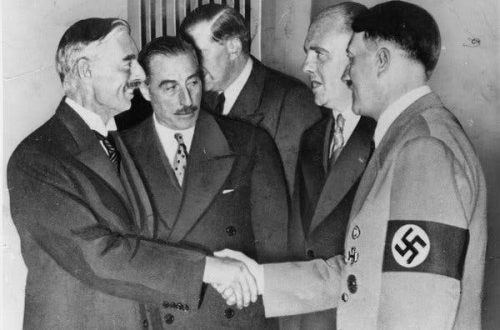On January 8, 1697, at some time between two and four in the afternoon, an eighteen-year-old student named Thomas Aikenhead was hanged in Edinburgh. Aikenhead had been found guilty of a serious charge: the previous year he had several times told other young men that the doctrines of Christian theology were “a rapsodie of faigned and ill-invented nonsense.”
Poor Aikenhead was the last in a long line of people put to death in Scotland for what had been the capital offence of blasphemy. His short life and shorter death may have had one positive effect though – nearly all of the books on the Scottish Enlightenment cite the latter event as an example of how fast things changed during that chink of Scottish history between the end of the Seventeenth and middle of the Eighteenth Century.
When Aikenhead climbed the scaffold Scotland was not far off being a theocracy in everything but name. Here’s an account of the atmosphere of the time from a review of the most recently published book to consider the intellectual life of Eighteenth Century Edinburgh:
As late as 1719, Presbyterian tracts raged against truants from Sabbath worship “walking through fields, parks, links, meadows,” or, even worse, “misspending their time in idle discourse, vain and useless communication.” These Sabbath strictures were enforced by a kind of religious police known as the Seizers, who, operating like Saudi enforcers today, collared people on the street and sent them into dank churches, where they were subjected to threatening sermons on the punishments for fornication. Edinburgh in the early eighteenth century, Buchan says, “looked and smelled like a medieval city.”
I can remember echoes of that Presbyterian morality in Scotland as late as the 1980’s and think they probably exist still today in very diluted form. When I was at school swings and roundabouts were chained up for the duration of the Sabbath – presumably so that no merriment could be had by wicked children on the Lord’s Day. I never questioned the practice until I went to university in England and noticed that things were done differently there. The point I want to make is that – despite the doctrines of Calvinism being essentially the same now as they were hundreds of years ago – people have not been seized in Scottish streets or put to death by the Kirk for 300 years. And that’s obviously a good thing.
We can thank – in part – the various thinkers and troublemakers of what seems recently to have become known as the Scottish Enlightenment for that change for the better. Fifty years after the state approved execution of a big mouthed Edinburgh student, philosopher David Hume could publish sceptical words slyly mocking religion with little in the way of official harrasment. In 1748 he published An Enquiry Concerning Human Understanding and in it examined the phenomenon of miracles:
A miracle is a violation of the laws of nature,” he asserts, and then engages in a lawyerly interrogation of the evidence. What’s the number and reliability of the witnesses? How close are they to the event itself? For Hume, the question is not whether miracles happen but under what conditions belief in them spreads.
The change in Scotland in the fifty years from 1697 was rapid and dramatic. It had gone from being a poor, superstitious land troubled by regular famine to a much richer nation blazing a trail at the forefront of intellectual, scientific and commercial life a handful of decades later. How did that happen ?
By the mid-eighteenth century, the Scots had realized that the acts of kings and queens and the words of religious or humanist sages were less important—less formative of social life—than such things as modern manufacture, commerce, and international trade.
The same thing happed in other countries too. The 1868 Meiji restoration in Japan kickstarted the transformation of a feudal backwater into a textbook example of modernity almost overnight. Out went the age old social relations that had kept power in the hands of a small elite ruling over a vast peasantry and in came universal literacy, modern means of production and democratic reform of government.
Neither transformation was without pain or cost though – it never is. Nor was there any lack of voices denouncing change and arguing for the old ways to be retained – these voices are always with us. Despite the – sometimes persuasive – arguments of those who have an interest in keeping the status quo I think both countries are better off as they are today rather than the poor, obscure places in which the majority of people who lived there never traveled beyond their villages and who had attempted to explain the world to themselves via inherited supertitions that they used to be.
Anyone who has had any experience of the Arab world will recognise aspects of pre-Enlightenment Scotland and pre-Meiji Japan in the region today. Poverty ? check. Religious obscurantism ? check. Political absolutism ? Check. You get the picture, I won’t go on.
The Arab – and to some extent the larger Muslim world – is today at a historically crucial crossroads. As some Muslims have pointed out victimhood and superstition are widespread and used as an attempt to explain the workings of the rest of the world that is rapidly leaving Arabs behind technologically, commercially and intellectually. But there are voices raised against these negative phenomenon. As Harry illustrated on Saturday these voices come from the people themselves. Honest observers who live in the Arab countries know that they are kept from exploring their potential, and – crucially – they know why. It’s not anything deficient in Arabs that’s the problem but it is something deficient in the state of Arab politics. The Arab monarchies, police states and tribal strongmen in control of most Arab states are fettering the development of the economy and the interests of the people. If the people get rid of these chains a liberated Arab people will demonstrate to the world that they are no more fated to be mired in backwardness than the pre-Enlightenment Scots or pre-Nineteenth Century Japanese.
I don’t know many Iraqi citizens but the ones I have met are intelligent, commercially minded and know – more than most – the value of a modern education. These attributes have served other people well in the past and if the citizens of Iraq are allowed to use their undoubted talents they will transform a leading Arab country in the same way other people in other circumstances have done. Give them a chance and progress will be made.
What obstacles block that progress ? Apart from the remnants of the old neo-fascist regime and the Jihad tourists flocking in to kill “the Jews” those in the West who call for the immediate withdrawal of coalition forces from Iraq are effectively saying that they don’t care if Iraq slips back into the mud of political gangsterism or is left to the sort of religious extremism Iraq’s neighbours suffer under. They are part of the problem. To any honest observer it is clear that the only political result of immediate withdrawal is surrender to the extremely well armed Baathists and enormously well funded terrorists determined – for their own reasons – to disrupt the January elections and strangle the Arab world’s first democracy before it is allowed to be born.
The task of progressives is to work to strengthen those Iraqi citizens who have sacrificed their personal safety – and sometimes paid with their lives – to battle the terrorists and Baathists and who have announced their goal of a future which includes the freedoms and advantages we in Europe take for granted.
No-one likes having foreigners toting guns in their country and the coalition forces should leave the instant they are no longer needed. But – and this is the crucial point – for democracy and modernity to triumph against the very real challenges to it the troops will be needed until the Iraqi forces are able see off the alliance of terrorist and Baathist themselves.
Those who are currently make a totem of national sovereignity and call for the immediate withdrawal of troops should reconsider the lessons of history. Did feudalism in Japan crumble without any outside agency ? Would Scotland have developed in the way it did if England had not existed ? The answer in both cases is no.
The fact is that the future of Iraq is too important to be decided by Little Englanders or the type of old fashioned conservatives who argue that Arab democracy isn’t worth the cost of our assistance. Or – more interestingly – those on the Left who have borrowed their arguments.
Modernity and democracy are coming for the Arab world. The old rulers and authorities know this and are scurrying around behind the scenes in an attempt to deal with the new situation. The question that needs to be answered by those in this country who profess to care about the region is blunt – which side are you on ?


